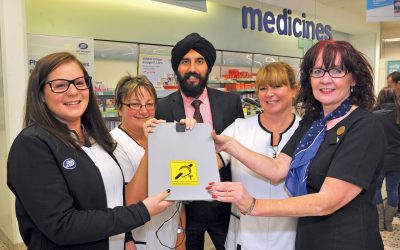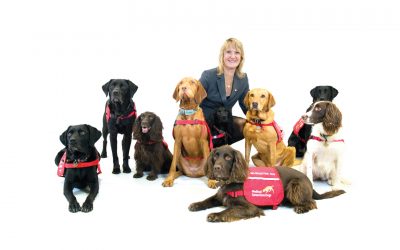The lush, green fields of Warsop in Nottinghamshire, just a bow and arrow shot from Sherwood Forest, are a far cry from the dry and parched fields surrounding villages in Maharashtra.
Here in Western India, the risk of desertification is high – when arable-rich land becomes bereft of water and vegetation. It means that during the dry season, farmers are forced to leave their families behind, travelling to nearby towns for work.
Water is chronically scarce and how villagers tend their land can no longer withstand rapidly-changing climates.
It is a desperate situation, and one which has prompted the Rotary Club of Warsop, Shirebrook & District to partner with clubs from three separate countries towards a life-changing initiative developing water and land resources in rural India.
In India, agriculture and related industries, such as fisheries and forestry, employ around 50% of the workforce, particularly in rural regions.
The Nandanvan Trust works with farmers, educating them on improved methods for water collection, storage and irrigation, and helping villages to future-proof agricultural practices.
But without funding support, groups like the Nandanvan Trust, which is a Non-Governmental Organisation (NGO), struggle.
So since 2014, the Rotary Club of Warsop, Shirebrook & District has worked with clubs in Pune (India), Ellwangen (Germany) and Zofingen (Switzerland) to raise funds for the Trust’s activities, particularly in Maharashtra. The money has helped conserve and protect land resources, with tangible results.
Families in this area live below the United Nations’ definition of the poverty line, on less than $1.50 a day.”
Rotary funds have developed an additional 80 hectares of new fields – more than doubling the amount of land available for farming before the project was launched.
Farmers have planted more than 12,500 crop-producing trees such as cashew and custard apple. And thanks to improved irrigation, 75% of these trees are successfully growing in a climate where there used to be scrubland.
Water availability in the area has been significantly improved. Despite heavy rainfall, wells surrounding the village, including two new bore wells created by the Nandanvan Trust, were often completely dry before the project began. This was due to a lack of adequate provision.
Now, none of the five wells villagers rely on for drinking water or irrigation run dry at any time in the year.
A combination of techniques, including digging continuous contour trenches and forming ‘rice paddy’ style reservoirs, means water can be collected effectively during monsoon season and then stored for use or dispersed among fields during the dry season.
The human impact of the Rotary clubs’ work cannot be underestimated.
Families in this area live below the United Nations’ definition of the poverty line, on less than $1.50 a day. During the dry season, farmers used to leave their wives and children behind to work in the cities.
The women would walk miles each day to fetch clean drinking water. For some, they quit the villages and their way of life altogether to move permanently to nearby towns.
Thanks to improved agricultural practices and access to water, there has been no migration of farmers during the dry season. Even better, two families who had left the area have returned to benefit from the greater opportunities this new way of farming has brought the village.
None of the five wells villagers rely on for drinking water or irrigation run dry at any time in the year.”
Younger farmers, aware of the pressing demands of a global food market and the risks of climate change, are working together to change how they farm in the future.
Overall, the equivalent of 15% of the project’s investment is going back to the villagers through additional income from their land.
The success of this project has led to a brand new initiative. Inspired by the direct positive impact that’s been made by their funding, a group of international Rotary clubs have joined forces with the Watershed Organisation Trust (WOTR), an NGO working in areas where water poverty is a harsh reality.
Last year, the WOTR won the 2017 Land for Life Award from the United Nations Convention to Combat Desertification, where it’s pioneering work was recognised for the tangible way it had transformed the lives of communities.
Warsop, Shirebrook & District’s partner club, Zofingen, wants to mobilise 100 international Rotary clubs in 2018 to provide further funds for the WOTR’s projects in India and their developing work in Malawi.
Working together means we can raise more money, spread the good work of NGOs like the Nandanvan Trust and WOTR further, and benefit the lives of more communities at risk from water poverty and desertification.


























































